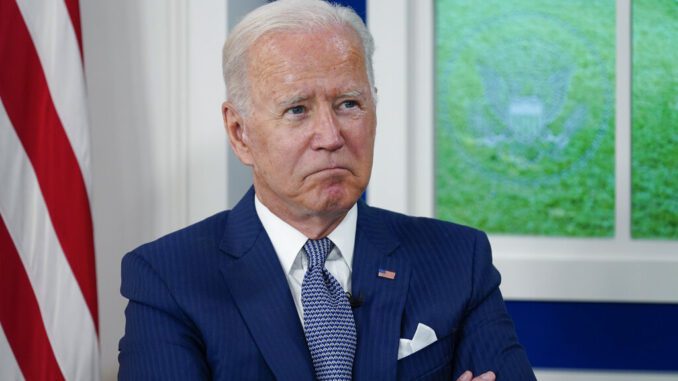
WASHINGTON, D.C. — Time growing shorter, President Joe Biden planned to meet privately Wednesday with House and Senate Democrats as Congress worked to bridge party divisions over his big “build back better” agenda ahead of crucial voting deadlines.
The meetings at the White House come at a pivotal juncture for Biden’s $3.5 trillion package as lawmakers struggle to draft the ambitious effort. With Republicans solidly opposed, Democratic leaders are counting on the president to galvanize consensus between progressives and centrists in their party.
Biden was also meeting separately with House Speaker Nancy Pelosi and Senate Majority Leader Chuck Schumer, and the White House’s communications team headed to Capitol Hill to huddle with other House Democrats.
“The time is now,” Biden tweeted in a video Tuesday ahead of the White House sessions.
The House faces a deadline Monday to vote on the first part of Biden’s plan — a nearly $1 trillion public works measure that was already approved by the Senate but has become tangled in disputes over the broader package.
Centrist Democrats support the slimmer bill but have raised concerns about Biden’s broader vision — which entails revamping federal taxes and spending to make what the president views as overdue investments in health care, family services and efforts to fight climate change.
The $3.5 trillion package would impose tax hikes on corporations and wealthy Americans earning beyond $400,000 a year and plow that money back into federal programs for young and old.
House Speaker Pelosi has promised centrists a vote on the more modest $1 trillion public works package. That bill of roads, broadband and public water projects enjoys bipartisan Senate support and should easily pass the House even with growing House Republican opposition, but has become sidelined by the bigger debate.
“I’m confident we’ll have the votes,” said Rep. Josh Gottheimer, D-N.J., a leader of the centrist coalition who is attending the White House meeting.
But progressive lawmakers view the public works bill as inadequate and plan to vote against it unless it is considered alongside the bigger Biden package. Some 50 members of the Congressional Progressive Caucus plan to vote against the bipartisan measure.
Rep. Pramila Jayapal, D-Wash., chairwoman of the progressive caucus, emerged from an hour-long meeting with Pelosi late Tuesday saying its position had not changed and the two bills must move “in tandem” to win the progressive votes. Jayapal also will attend the meeting with Biden.
Publicly, the White House has remained confident both bills will pass, and Democratic leaders are pushing ahead as they draft the details.
Tensions are high as the Biden agenda is a key campaign promise not only from the president but most of the the Democratic lawmakers, including those in the House who face re-election next year.
All this as the House and Senate are at a standstill over a separate package to keep the government funded past the Sept. 30 fiscal yearend and suspend the federal debt limit to avert what could be a devastating U.S. default on payments.
The government faces a shutdown if funding stops on Sept. 30, the end of the fiscal year. Additionally, at some point in October the U.S. risks defaulting on its accumulated debt load if its borrowing limits are not waived or adjusted.
Rushing to prevent that dire outcome, the Democratic-led House passed the funding-and-debt measure Tuesday night, but Republicans are refusing to give their support in the Senate, despite the risk of triggering a fiscal crisis.
“Our country will suffer greatly if we do not act now to stave off this unnecessary and preventable crisis,” said House Majority Leader Steny Hoyer, D-Md. And the administration has sent intermediaries including former Treasury Secretary Hank Paulson to meet with Republican Senate leader Mitch McConnell of Kentucky.
But McConnell said since Democrats control the White House and Congress, it’s their problem to find the votes.
“The debt ceiling will be raised as it always should be, but it will be raised by the Democrats,” McConnell said.
The measure approved Tuesday night would provide stopgap money to keep the government funded to Dec. 3 and extend borrowing authority through the end of 2022. It includes $28.6 billion in disaster relief for the aftermath of Hurricane Ida and other extreme weather events, and $6.3 billion to support Afghanistan evacuees in the fallout from the end of the 20-year war.
In the 50-50 Senate, Democrats will be hard-pressed to find 10 Republicans to reach the 60-vote threshold needed to overcome a filibuster.
The Treasury Department has been using “extraordinary measures” to fund the government since the last debt limit suspension expired July 31, and projects that at some point next month it will run out of cash reserves. That could force the Treasury to delay or miss payments.



